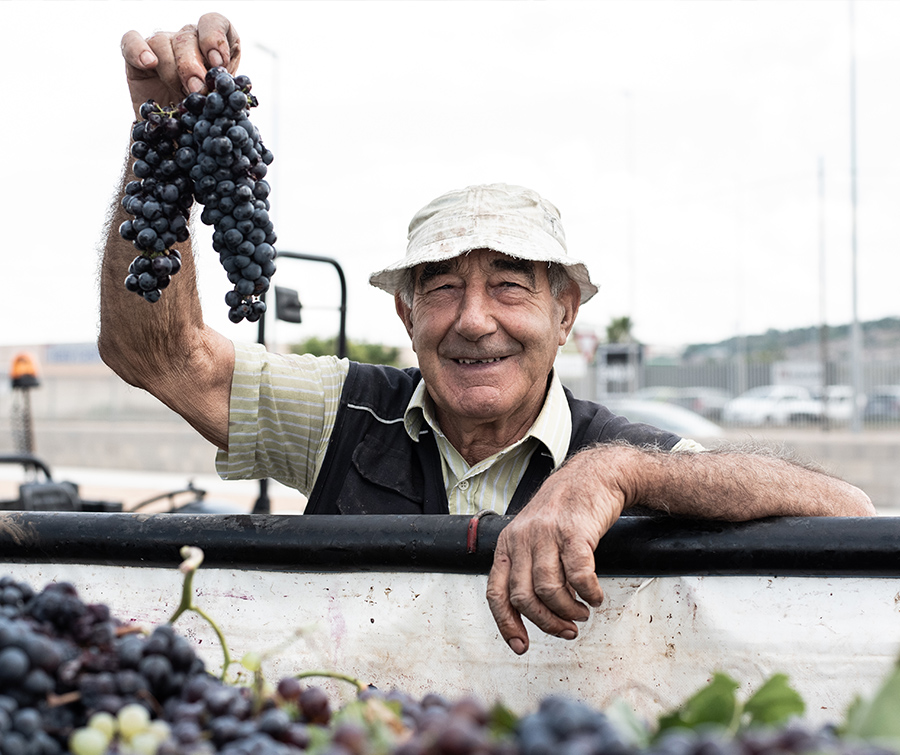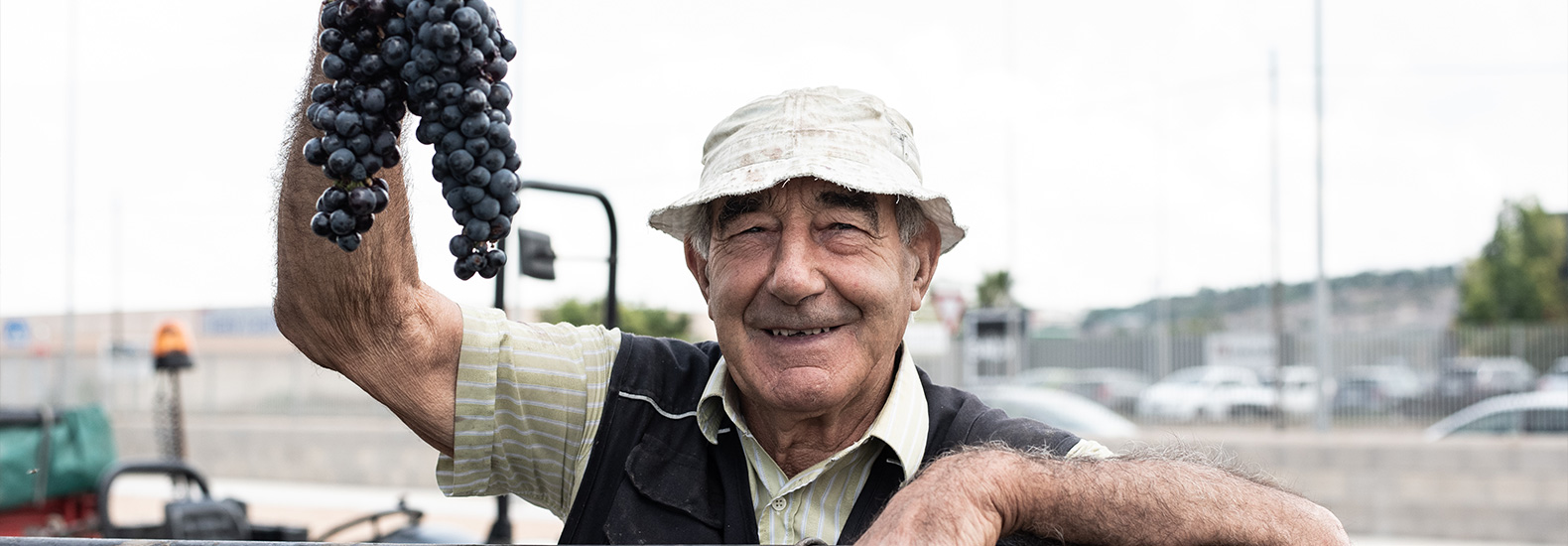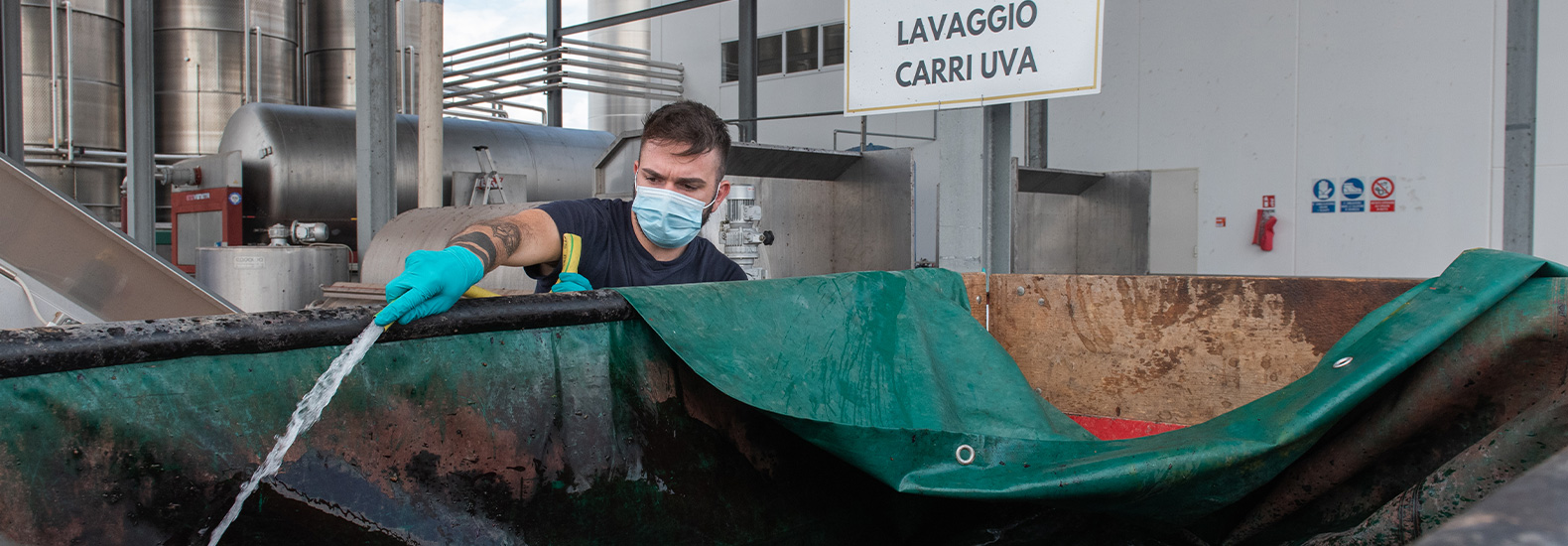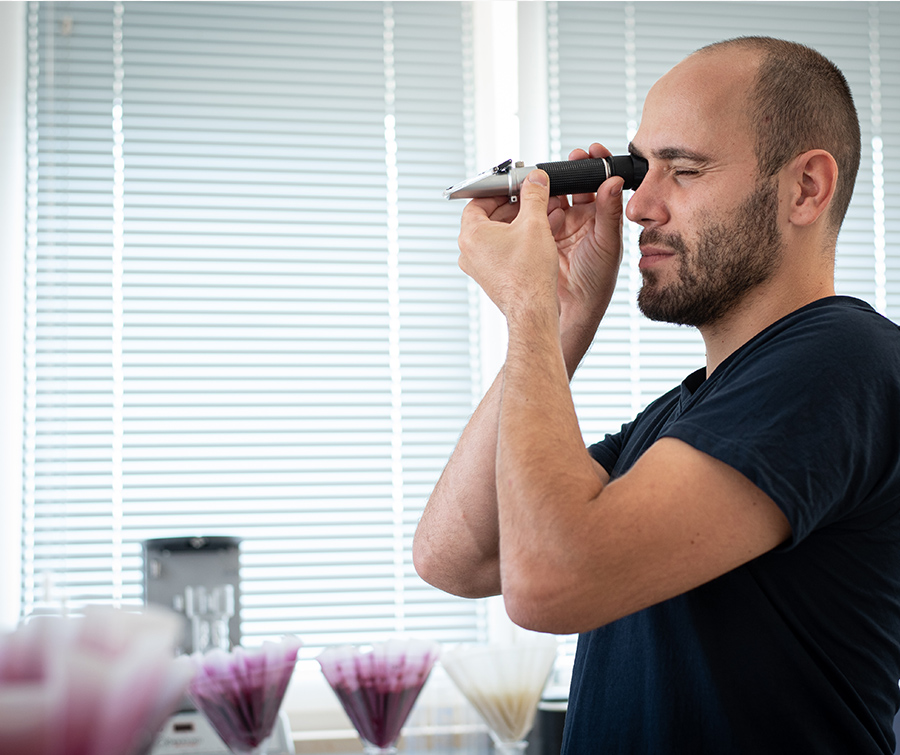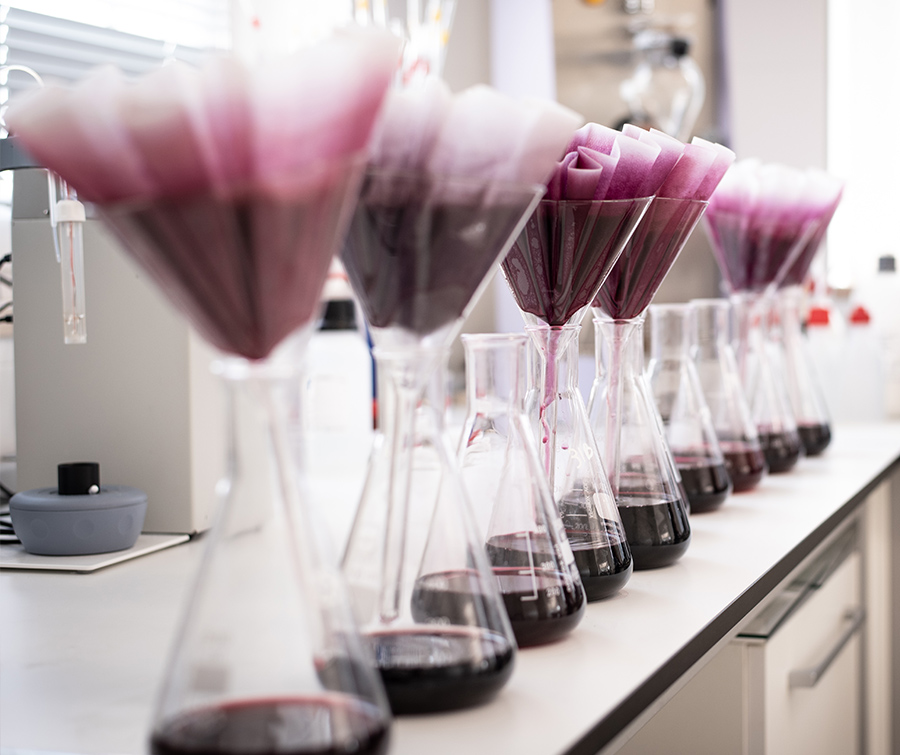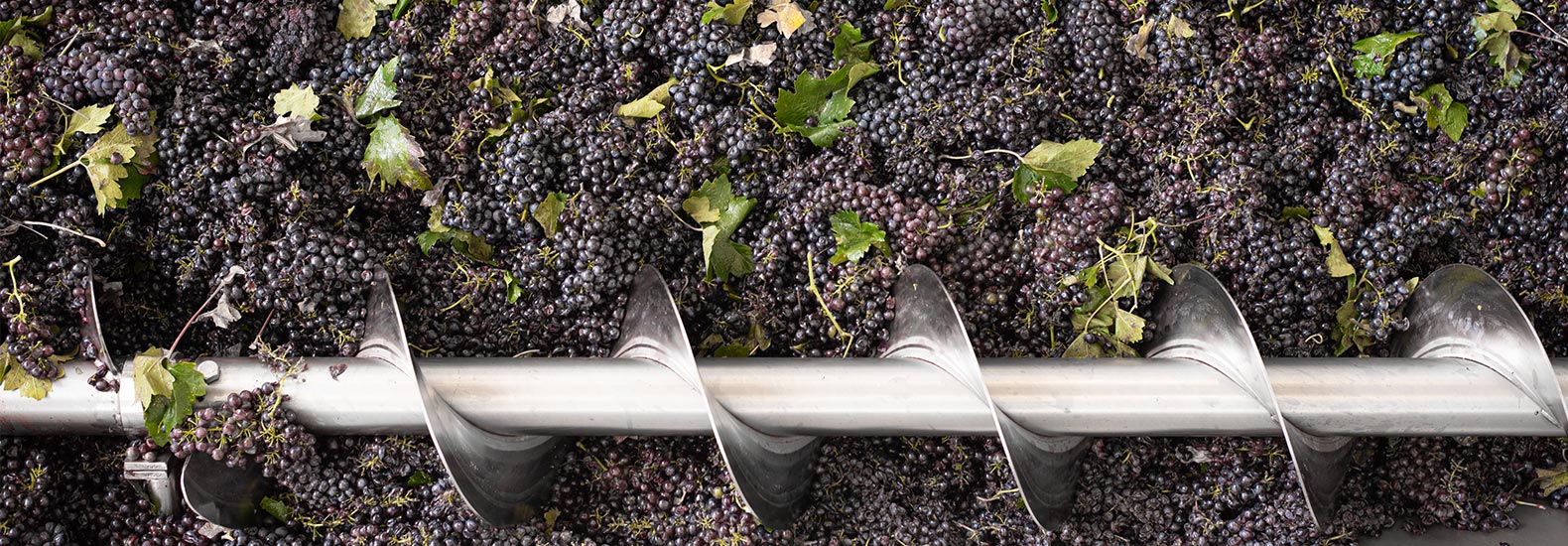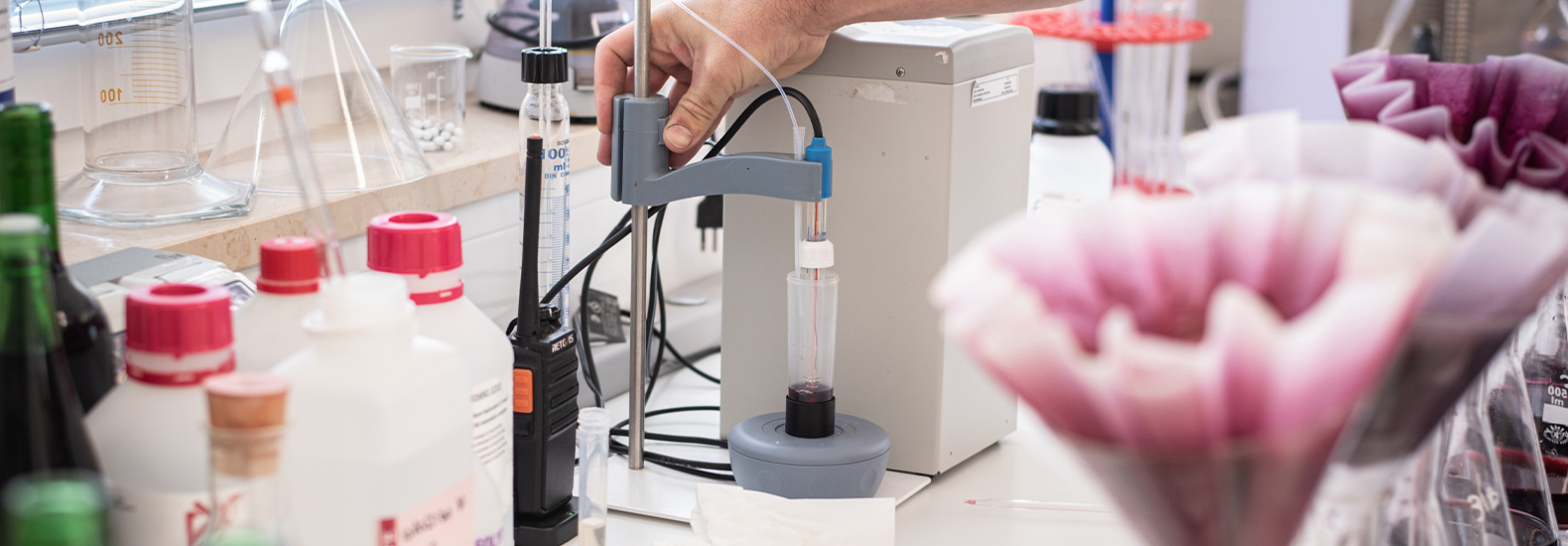CSG Protocol.
Traceability, Technique, Poetry.
For fifty years in the world of wine, the Tinazzi family produces in Veneto and Puglia. In the new CSG production site in Apulia, the bulk product is processed with a strict total traceability Protocol of the entire supply chain to offer to the customer guaranteed and constant high quality wines. Our cellar boasts a capacity of approximately 80,000 Hl and is equipped with temperature-controlled stainless steel tanks holding volumes between 10 and 2,500 Hl. Fermentation vessels have a maximum capacity of 600 Hl each. The grapes come from our own 65 hectares of vineyards, plus approximately 210 hectares from external suppliers.
Grapes
The wines we produce come from our own grapes, from wine-growing families, with small and medium-sized holdings, and from external suppliers. The vineyards are cultivated partly with guyot and partly with alberello cultivation system, an ancient Salento culture.
Grapes
Origins
The wines we produce come from our own grapes, from wine-growing families, with small and medium-sized holdings, and from external suppliers. The vineyards are cultivated partly with guyot and partly with alberello cultivation system, an ancient Salento culture.
Technical support
Together with our agronomist, we provide our vine-grower partners with the technical support needed (fertilization, pruning, treatments) for a correct vineyard management. Vineyards are checked and all grape ripening phases are monitored by both the growers and the agronomist. From veraison onwards, grapes are taken to our laboratory to be analysed so the ripening curve can be assessed, and the ideal harvesting and collection date can be established. All parameters are entered into specific modules envisaged by the BRC – IFS quality system. What is more, batches suitable for specific techniques such as plant drying or late harvesting are identified during vineyard inspections.
Harvest
All harvesting operations are supervised to make sure that the equipment and tools used (harvester, trucks) comply with current food security standard, and everything is documented by certificates of washing. What is more, as per the protocol, trucks must go to a specific station to be washed after being unloaded.
Cellar
Our collection protocol establishes that grapes must be delivered by 12.00 p.m. so as to guarantee that they are harvested early in the morning to minimize any possible microbial contamination during transport, therefore guaranteeing the high-quality of the crushed grapes.
Cellar
Grapes’ delivery
Our collection protocol establishes that grapes must be delivered by 12.00 p.m. so as to guarantee that they are harvested early in the morning to minimize any possible microbial contamination during transport, therefore guaranteeing the high-quality of the crushed grapes.
Analytical control
When grapes are delivered, an analytical control is performed (Babo degree, acidity, Ph and heavy metals) to establish the correct wine-making protocol and sort the grapes for dedicated projects.
Fermentation and analyses
All our wines are fermented at a controlled temperature. Alcohol, sugar, Ph, total acidity, volatile acidity, malic acid and lactic acid levels are checked during this phase. Analyses are carried out by both the internal laboratory of the cellar and the external – Vassanelli Lab Verona – Accredia licensed, to guarantee a correct fermentation.
Red grapes’ vinification
Red grapes are processed via a computerised air-jet dosing system inside the vessels, which creates turbulences that enable the solid part (the skins) to remain always submerged by the must, in order to prevent the forming of the cap. This process avoids the proliferation of acetic bacteria and allows a greater extraction of the substances contained in the peel.
Autochtonous yeasts
Another important factor when it comes to fermentation is the use of autochtonous yeasts. Thanks to the collaboration with renowned research centre Startogen and with Starfinn, a spin-off of the University of Basilicata, a research was carried out on our grapes to trace local yeast strains not in commerce and with a marked fermentation capacity. Paper documents on the entire research activities are available.
Red grapes’ fermentation
All our red wines undergo malolactic fermentation with selected bacteria, which are coinoculated to reduce the risks of an incomplete malic acid transformation and the production of substances such as biogenic amines or ethylcarbamate.
Wine
Before they are sold and delivered, our wines are subjected to additional analytical controls by external laboratory Vassanelli LabVerona - Accredia licensed, to guarantee their compliance with the law when it comes to heavy metals, ochratoxin, multiresidues, plant protection products, glycols, methanol, sulphates, chlorides, volatile phenols, diglycerines. We also perform microbiological checks of tank vehicles and flexy tanks.
Wine
Pre-selling checks
Before they are sold and delivered, our wines are subjected to additional analytical controls by external laboratory Vassanelli LabVerona – Accredia licensed, to guarantee their compliance with the law when it comes to heavy metals, ochratoxin, multiresidues, plant protection products, glycols, methanol, sulphates, chlorides, volatile phenols, diglycerines. We also perform microbiological checks of tank vehicles and flexy tanks.
Tastings
Wines can be tasted at our production facility (Via Pitagora 1, Faggiano – Taranto) or via delivered samples during a videoconference.
Post-selling checks
As per our internal protocol, the wines sold undergo two monthly analytical checks to maintain the right level of free SO2, combined with the use of oenological tannins that maintain the shelf-life.
Constant quality
Every month, we send “test” samples of the wines purchased to the client facility so that the constant quality of the product can be verified. Tasting can also be arranged via videoconference with our staff, or directly at our facility.
Customised options
What is more, we can supply to our clients filtered and stabilized wines of a different strength and type ready for bottling (ageing in wooden casks, chips, selected tannins), the sugar residue can vary according to a protocol drafted by the client and our staff.
Private labels
Upon request of the client, bottles can feature private labels in the Doc production area. In addition, upon request, clients may also choose the grapes from a specific vineyard. The traceability of the entire wine-making process is guaranteed thanks to a dedicated winemaking protocol.


